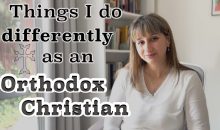Unpacking the Orthodox Christian Easter Calendar: A Guide to the Ancient Traditions
The Orthodox Christian Easter calendar is a rich and complex tapestry of traditions, rituals, and celebrations that have been observed for centuries. As one of the oldest Christian denominations, the Orthodox Church has preserved many of the ancient customs and practices that date back to the early days of Christianity. In this article, we will delve into the fascinating world of Orthodox Easter traditions and explore the significance of this sacred holiday.
A Brief History of the Orthodox Christian Easter Calendar
The Orthodox Christian Easter calendar is based on the Julian calendar, which was introduced by Julius Caesar in 45 BCE. The Julian calendar differs from the Gregorian calendar, which is widely used in the Western world, by approximately 13 days. This discrepancy arises from the fact that the Julian calendar has a leap year every four years, whereas the Gregorian calendar omits three leap years every 400 years. As a result, the Orthodox Christian Easter calendar often falls on a different date than the Western Christian Easter calendar.
The Lenten Fast: Preparing for Easter
The Orthodox Christian Easter calendar begins with the Lenten fast, a period of 40 days of spiritual preparation and reflection. During this time, Orthodox Christians fast from meat, dairy products, and other luxuries, and engage in intense prayer, meditation, and charity work. The Lenten fast is a time of purification and repentance, as believers seek to cleanse their souls and draw closer to God. The fast is broken on Sundays, when believers gather for worship and communion.
The Holy Week: The Final Days of Lent
The final week of Lent is known as Holy Week, a period of intense spiritual preparation and celebration. Each day of Holy Week has its own unique traditions and rituals, including:
- Palm Sunday: commemorating the triumphal entry of Jesus into Jerusalem
- Holy Monday: remembering the withered fig tree, a symbol of spiritual barrenness
- Holy Tuesday: reflecting on the parable of the ten virgins, a warning to be prepared for the coming of the Lord
- Holy Wednesday: commemorating the anointing of Jesus by the woman with the alabaster jar
- Holy Thursday: celebrating the institution of the Eucharist and the washing of the disciples’ feet
- Good Friday: observing the crucifixion and death of Jesus Christ
- Holy Saturday: awaiting the resurrection of Jesus Christ
The Resurrection: The Triumph of Life over Death
The climax of the Orthodox Christian Easter calendar is the Resurrection, which is celebrated on Easter Sunday. The Resurrection is a triumph of life over death, as believers rejoice in the knowledge that Jesus Christ has conquered sin and death, and that eternal life is available to all who believe in Him. The Resurrection is celebrated with grand liturgies, processions, and feasting, as believers gather to proclaim the good news of the Risen Lord.
Traditional Foods and Customs
Orthodox Christian Easter traditions are rich in traditional foods and customs, which vary from country to country and culture to culture. Some of the most popular traditions include:
- Easter bread: a sweet bread filled with nuts, raisins, and spices, which is baked on Holy Thursday and broken on Easter Sunday
- Red eggs: hard-boiled eggs dyed red, which symbolize the blood of Christ and are exchanged as a sign of love and friendship
- Lamb: a traditional Easter dish, which represents the Paschal Lamb and is often served with rice, vegetables, and herbs
- Easter baskets: baskets filled with traditional foods, such as cheese, bread, and eggs, which are blessed by the priest and distributed to the faithful
Conclusion
The Orthodox Christian Easter calendar is a vibrant and meaningful expression of faith, which has been preserved and passed down through the centuries. As we celebrate the Resurrection of Jesus Christ, we are reminded of the power of love, forgiveness, and redemption, and we are called to reflect on the significance of this sacred holiday. Whether you are an Orthodox Christian or simply interested in learning more about this ancient tradition, we hope that this guide has provided a deeper understanding and appreciation of the Orthodox Christian Easter calendar.

